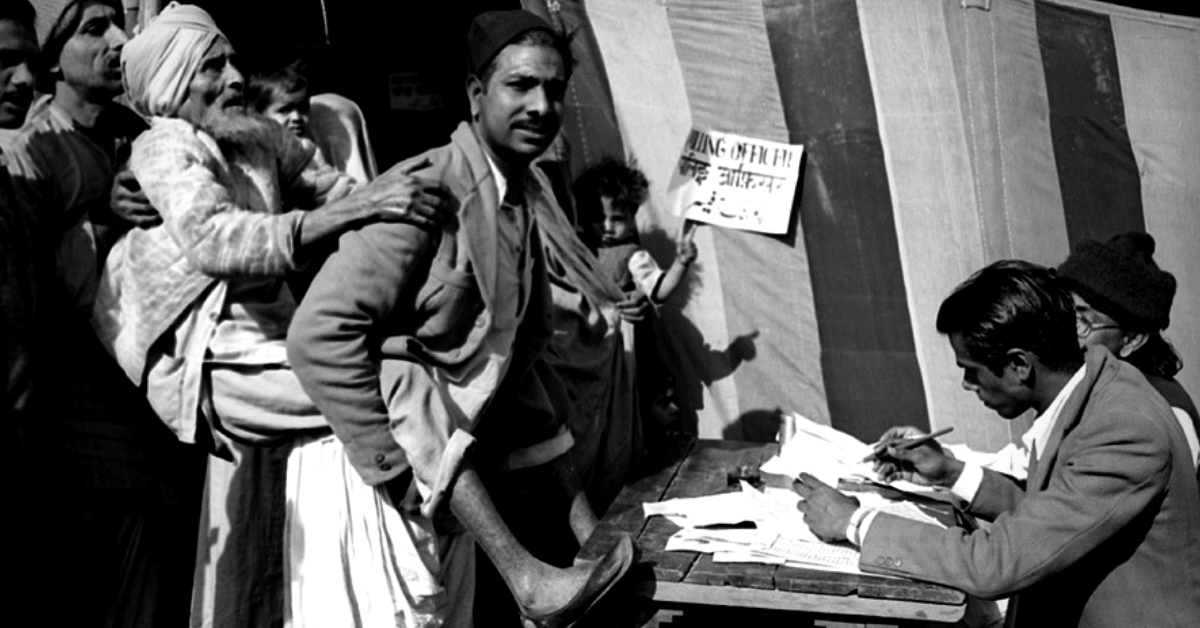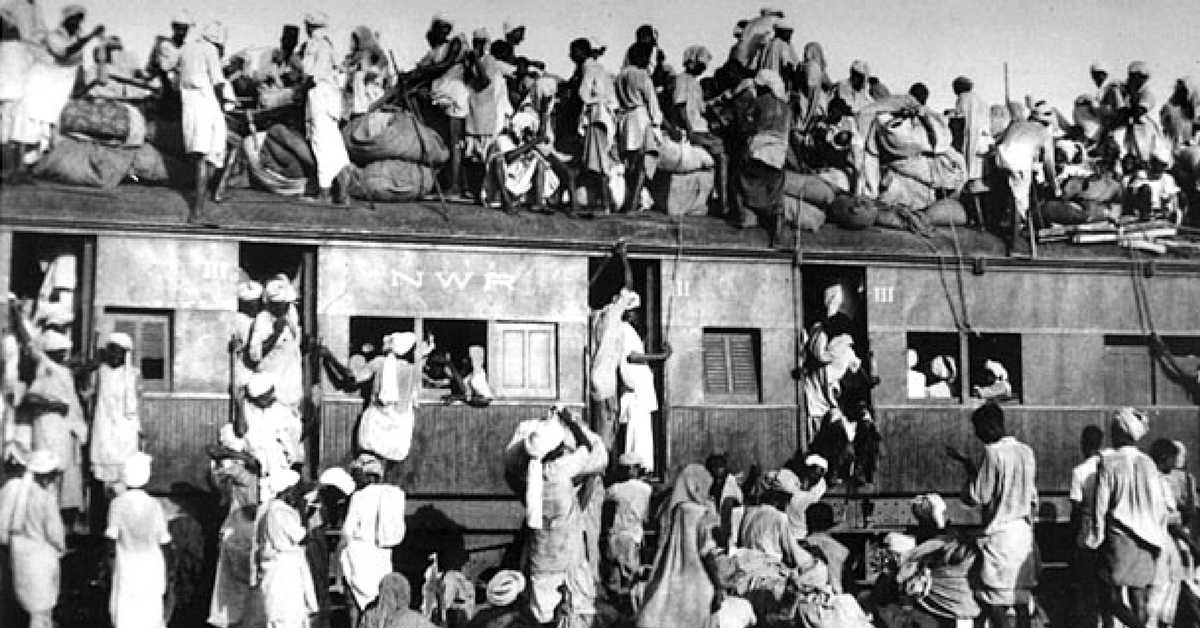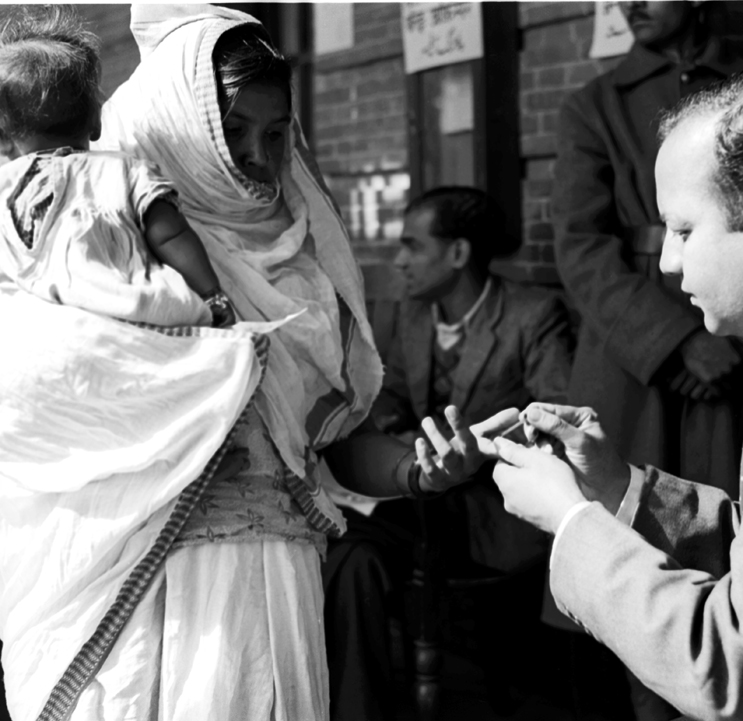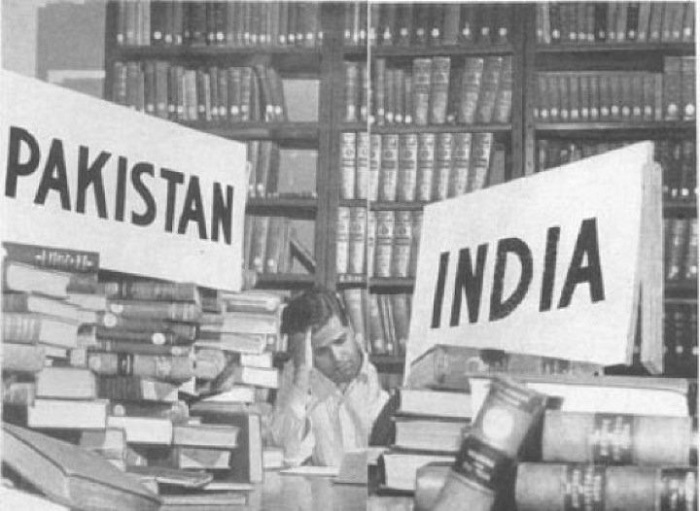Are You a Citizen or a ‘Migrant’? These Heated Debates From 1949 Have The Answer
“We are not a nation of shopkeepers. Whatever the economic consequences maybe we want to stand on certain principles.”

72 years ago, this week, 284 elected members of independent India ceremonially signed a magisterial hand-written tome. They were putting the final touches – literally – on a document they hoped would define India’s destiny.
Today, we can barely imagine the sense of infinite possibilities that fueled the five years it took to frame that document.
No matter how radical, liberal, conservative or outright unbelievable an idea was, if the majority of an Assembly of just 299 voted for it – It could happen! So to a large part, who we are today is who they wanted us to be.
Join The Better India in this four-part series ‘Constituent’, as we explore a simple question – What did 1950 feel 2019 would be?
Part three of the series takes a look at one concept – Citizenship.
Earlier this month, the Lok Sabha passed the Citizenship Amendment Bill of 2016. At the core of this bill, “persons belonging to minority communities, namely, Hindus, Sikhs, Buddhists, Jains, Parsis and Christians from Afghanistan, Bangladesh and Pakistan”, will not be considered illegal migrants.
While the objective of this bill is to offer religious minorities in the aforementioned countries sanctuary from persecution—a noble goal—many have argued that the rationale ascribed in the bill goes against the constitutional ethos our Founders had set.
It essentially distinguishes between legal and illegal migrants based on their religion.
In the Constituent Assembly, members deliberated on what conception of citizenship the new Indian State would adopt—’jus soli’ (citizenship by right of birth within the territory of the state) or ‘jus sanguins’ (citizenship by right of descent based on ethnicity or other communal markers).
After much deliberation, the Founding Fathers adopted the ‘jus soli’ approach, which according to Sardar Patel, carried a more “enlightened modern civilized” character and that all progressive nations were taking this route.
Moreover, they argued that ethnicity-based citizenship was outdated, and could foment communal divisions in the country.
Before delving further into the Constituent Assembly debates, it’s imperative to outline what Dr BR Ambedkar said about the direction members should take while discussing citizenship provisions.
“Now, Sir, this article refers to, citizenship not in any general sense but to citizenship on the date of the commencement of this Constitution. It is not the object of this particular article to lay down a permanent law of citizenship for this country. The business of laying down a permanent law of citizenship has been left to Parliament,” said the Chairman of the Drafting Committee on August 10, 1949.
Throughout the debate on Article 5-11 (citizenship) of the Constitution, which for the best part were discussed on 10, 11 and 12 August 1949, the ghost of Partition kept returning.
For example, PC Deshmukh passed an amendment stating “every person who is a Hindu or a Sikh and is not a citizen of any other State shall be entitled to be a citizen of India.”
The rationale behind this amendment is reminiscent of the Citizenship Amendment Bill, 2016.
“By the mere fact that he is a Hindu or a Sikh, he should get Indian citizenship because it is this one circumstance that makes him disliked by others.
We are not debarring others from getting citizenship here. We merely say that we have no other country to look to for acquiring citizenship rights and therefore we the Hindus and the Sikhs, so long as we follow the respective religions, should have the right of citizenship in India and should be entitled to retain such citizenship so long as we acquire no other,” he said on August 11, 1949.
Thakur Das Bhargava, a member elected from East Punjab, argued for an extension in the number of years it must take for people to acquire citizenship through the naturalization process from five to ten years.
Here, the emphasis is on where a citizen’s loyalties lie, particularly in the context of Partition. More specifically, Muslims who left at the time of Partition, but want to come back.
Thus, the demand for a longer requirement of ten years of residency in India.
However, all their amendments were rejected either by members withdrawing it or losing it via a vote, and the Constituent Assembly adopted the ‘jus soli’ principle for Article 5 (Read here).
While our framers were careful not to establish markers of religious difference when discussing citizenship, those elements did rear their head while framing what eventually became Article 6 & 7.
These articles introduced qualifying provisions to help manage the enormous population that had migrated from Pakistan as a consequence of Partition.
Article 6 conferred citizenship to those who migrated to India before July 19, 1948 (i.e. more than one year after Partition).
While those who came after this deadline would need to register themselves with an officer appointed by the government for a permit for resettlement or permanent return. However, one can only register themselves after they have resided in the territory of India for six months.

Besides certain logistical considerations, this was an uncontroversial clause, since it pertained to those refugees [Hindus] who had fled communal violence.
However, one cannot say the same of what eventually became Article 7, which dealt with citizenship for those [Muslims] who had fled India to Pakistan but returned to India under a permit issued by an official appointed by the government.
This was clearly the most contested article on the subject of citizenship. Those opposing this article called it “the obnoxious clause”.
As per the draft article proposed by Ambedkar, those who migrated from India to Pakistan after March 1, 1947, lost the rights to be citizens of India.
An exception was made for persons who returned to India with a permit for resettlement or permanent return issued by government authorities. Many members opposed this exception.
“Those in favour of more restrictive provisions claimed that Indian citizenship was being sold too cheaply: that those who had migrated had done so deliberately and intentionally and that their desire to return was definitely suspect,” writes scholar Niraja Gopal Jayal in her seminal work Citizenship and its Discontents.

A Polling Officers affixes indelible ink mark on the fore-finger of a voter before allowing her to cast the vote. (Source: Photodivision.gov.in)
Jaspat Roy Kapoor, the member from Punjab who had first coined the phrase “obnoxious clause” explained his position in no uncertain terms.
“Once a person has migrated to Pakistan and transferred his loyalty from India to Pakistan, his migration is complete. He has definitely made up his mind at that time to kick this country and let it go to its own,” he said on August 11.
With Partition hanging over every word, comment and speech, the tone and tenor of these debates were communal with those fleeing from Pakistan (predominantly Hindus and Sikhs) referred to as ‘refugees’ while those who had fled India, but wanted to return (predominantly Muslims) were referred to as ‘migrants’ who had voluntarily migrated to Pakistan.
Some members construed the acts of these ‘migrants’ as disloyalty, and that they had merely come back to sell their properties.
These arguments were rejected by the likes of Alladi Krishnaswamy Ayyar, the Constituent Assembly member elected from Madras, and a leading liberal voice in the Constituent Assembly.
“We are plighted to the principles of a secular State. But we cannot on any racial or religious or other grounds make a distinction between one kind of persons and another, having regard to our commitments and the formulation of our policy on various occasions,” he said, on August 12, 1949.
What particularly brought these communal elements to the fore were discussions on what happens to evacuee property left behind by Muslims who had initially migrated to Pakistan.
“For the critics of Article 7, there was simply no question of evacuee properties being restored to such people, because these properties had already been allotted to Hindu refugees from Punjab and were needed for their rehabilitation. The ‘obnoxious clause’, it was frequently argued, had important financial implications. Since the properties evacuated by departing migrants were being used to rehabilitate (Hindu) refugees, returning them the (Muslim) migrants, if they chose to return, would mean that ‘our refugee brethren’ would have to bear the cost,” writes Niraja Gopal.

Countering these claims raised by certain members, Jawaharlal Nehru said that those making such claims were arguing “for injustice, definitely for discrimination, for not doing something which after full enquiry has been found to be rightly done, and for doing something which from the practical point of view of numbers or property, has no consequence.”
Meanwhile, another member Brajeshwar Prasad, a member elected from Bihar, issued further support for the article moved by Ambedkar and backed by Nehru, by invoking Mahatma Gandhi.
“We are not a nation of shopkeepers; we cannot dethrone God and worship Mammon. Whatever the economic consequences maybe we want to stand on certain principles. It is only by strict adherence to certain moral principles that nations progress.”
At the end of these discussions, some of these contentious amendments were withdrawn while others were defeated by vote, and the Constituent Assembly stuck with the original draft.
Having said that, Parliament began to move away from the ‘jus soli’ principle following the adoption of the Constitution – particularly while crafting the Citizenship Act, 1955 and the multiple amendments passed on it since.
Markers of national and state identity based on religion and ethnicity became particularly more pronounced since, especially in regions like the Northeast (especially Assam) where unmitigated migration had disrupted the demographic balance.
Opposition to the Citizenship Amendment Bill, 2016 in the Northeast once again hinges on the perception that it will enable a dilution of indigenous identity by accelerating demographic changes with the entry of Hindu migrants from Bangladesh.

Questions of citizenship in a democracy are never quite settled. They are constantly being asked and re-framed depending on the political situation of the day. Our Founding Fathers dealt with these questions in the context of Partition – but made one point clear.
Your citizenship should never hinge on markers of ethnicity, religion, caste and gender.
For additional reading please refer to ‘Citizenship and its Discontents’ by Niraja Gopal Jayal.
(Edited by Vinayak Hegde)
Like this story? Or have something to share? Write to us: [email protected], or connect with us on Facebook and Twitter.
If you found our stories insightful, informative, or even just enjoyable, we invite you to consider making a voluntary payment to support the work we do at The Better India. Your contribution helps us continue producing quality content that educates, inspires, and drives positive change.
Choose one of the payment options below for your contribution-
By paying for the stories you value, you directly contribute to sustaining our efforts focused on making a difference in the world. Together, let’s ensure that impactful stories continue to be told and shared, enriching lives and communities alike.
Thank you for your support. Here are some frequently asked questions you might find helpful to know why you are contributing?


This story made me
-
97
-
121
-
89
-
167











